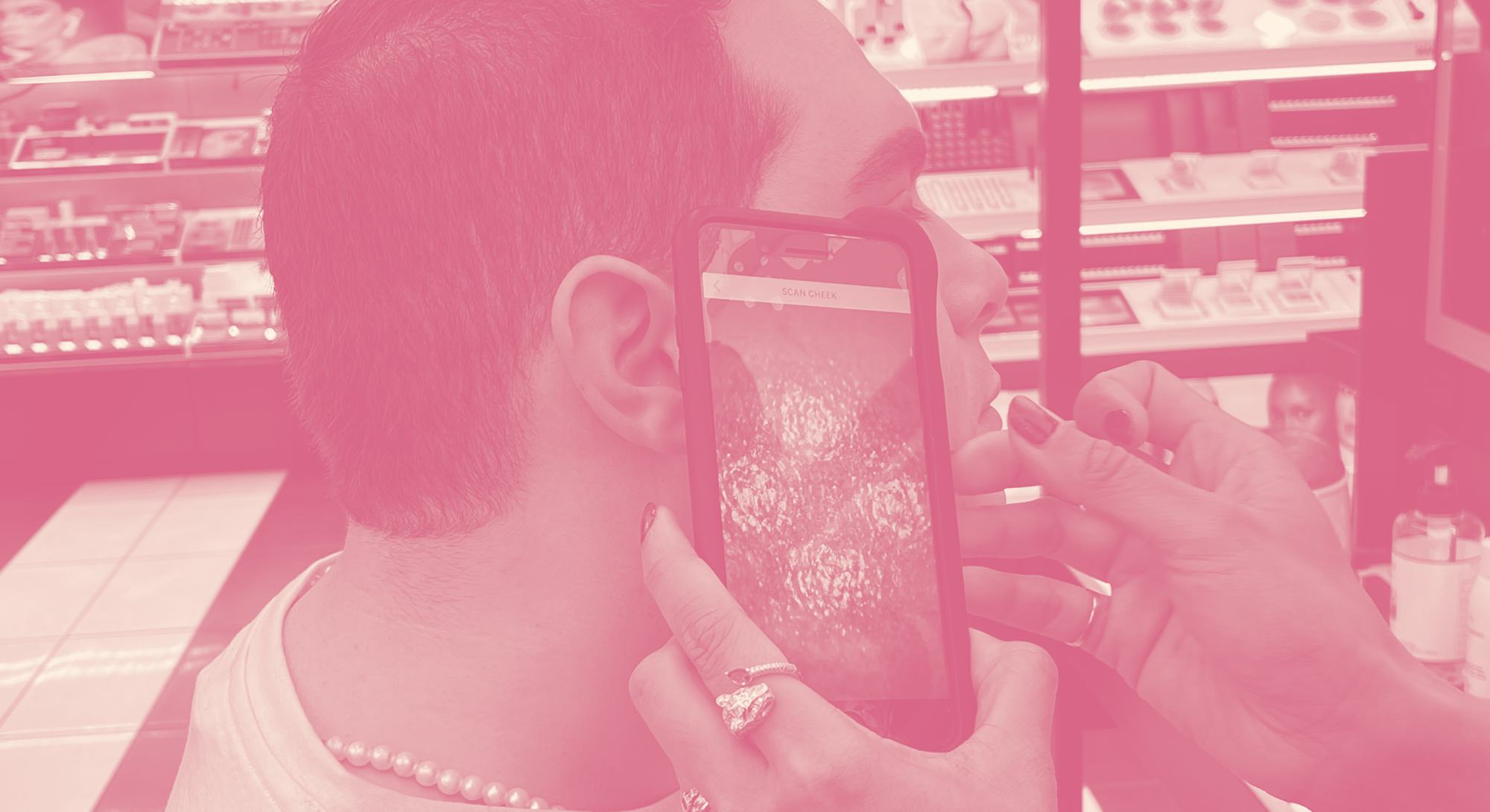This Thing Rules
I found my perfect makeup match with Sephora's Color IQ tech
Looking good, feeling gorgeous.

From Real Housewives and drag queens to athletes and action stars (and all of us that fall in between), bad shade matching seems to be a universal problem.
If you wear makeup, you know the pain of walking into different lighting and realizing your face skin is a wildly different color than the rest of you. If you don't wear makeup, the fear that people will notice that you are is probably a motivating factor in that determination. It took me a long, long time to be comfortable admitting to others that I enjoy using makeup, but the fear of a bad match still lingers over me every time I panic purchase multiple shades of foundation to test at home.
Seeking to alleviate this (and sell a lot more products), French multinational cosmetics retailer Sephora claims it has found a silver bullet: A service it calls Sephora Color IQ.
I was recently invited to demo Sephora's newly relaunched Color IQ technology at the company's 34th street location in New York City, where Sephora PRO artist Shawn Lumaban ran me through the process. Color IQ, originally developed in collaboration with the Pantone Color Institute in 2012, has generated over 14 million matches for the company, which has since introduced a sibling product, Lip IQ. In 2021, Sephora is boasting an improved camera lens and some new AI tools developed in-house — offering five times the numbers of skin tone matches than it had previously.
The Color IQ process uses a simple handheld camera to capture your skin's shade, factoring in its unique depth, undertones, saturation, and skin type, while accounting for redness, freckles, or stray hair follicles. Using this data, a proprietary algorithm with a dataset of over 10,000 skin tones matches you with a selection of products from Sephora's 25,000 SKU inventory sourced from 340 individual brands. After the AI makes some suggestions, one of Sephora's human Beauty Advisors can walk you through the results and find the right foundation, concealer, tinted moisturizer, or pressed powder for you.
In practice, the process is incredibly easy for the customer. I sat down in a makeup chair, had my skin prepped, and had sample photos taken from several locations across the visible skin of my face and body. After that, it's as easy as scrolling through a product list to find something you might want to wear. You're also given a four digit code (attached to your Beauty Insider membership, naturally) so that you can later make purchases from the comfort of your phone screen.
The simplicity of the process shouldn't dissuade you from believing that it actually works. After being matched with a handful of products, I selected a foundation and pressed powder suggested for me by the system. But, upon being handed the actual product, I was incredulous. I know consciously that makeup in its bottle looks very different from makeup on our skin, but I still irrationally expect to be passed something indistinguishable from the hand I'm holding it in.
In the end, I needn't have worried. Upon application, I gasped at what I was seeing. I have never in my life seen makeup disappear into my skin with such ease. Wearing a full face of foundation and powder, I looked like I'd simply gotten the best night's sleep in my life — or had stumbled into the supernatural lighting influencers seem to always find.
I looked like I'd simply gotten the best night's sleep in my life.
Since getting my match code, I have purchased multiple other products at the system's recommendation. They have all been equally as satisfying. Though the formulation itself might not always be ideal for my sensitive skin, Color IQ delivers it in a shade perfect for me — cutting the time I spend hunting for the perfect product down to a fraction of what I used to go through.
Though Sephora is likely hoping to make lifelong customers out of recipients of its Color IQ matches, the service does mean that customers may end up saving time and money by not having to try out shades and products they might ultimately find unsatisfying. This system also opens the door for people who would be conventionally too self-conscious to be "caught" wearing makeup to give concealer or powder a try.
If it's going to be a perfect match, what do you have to lose?